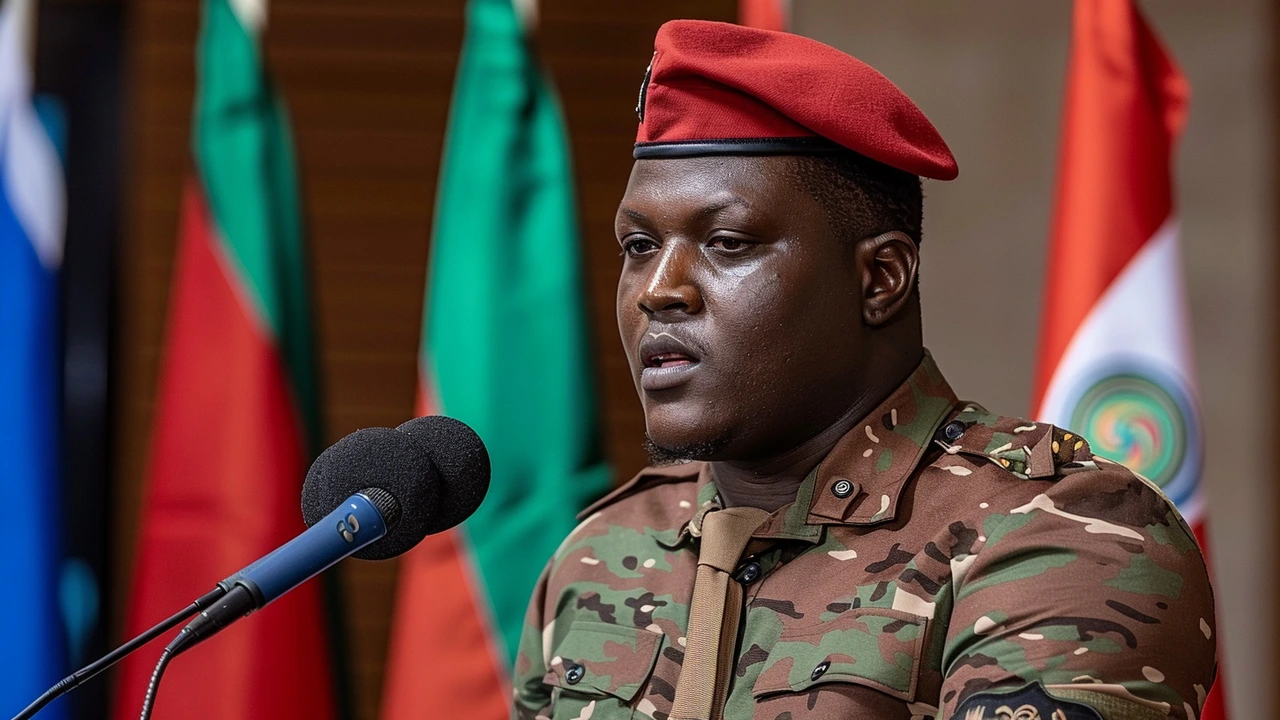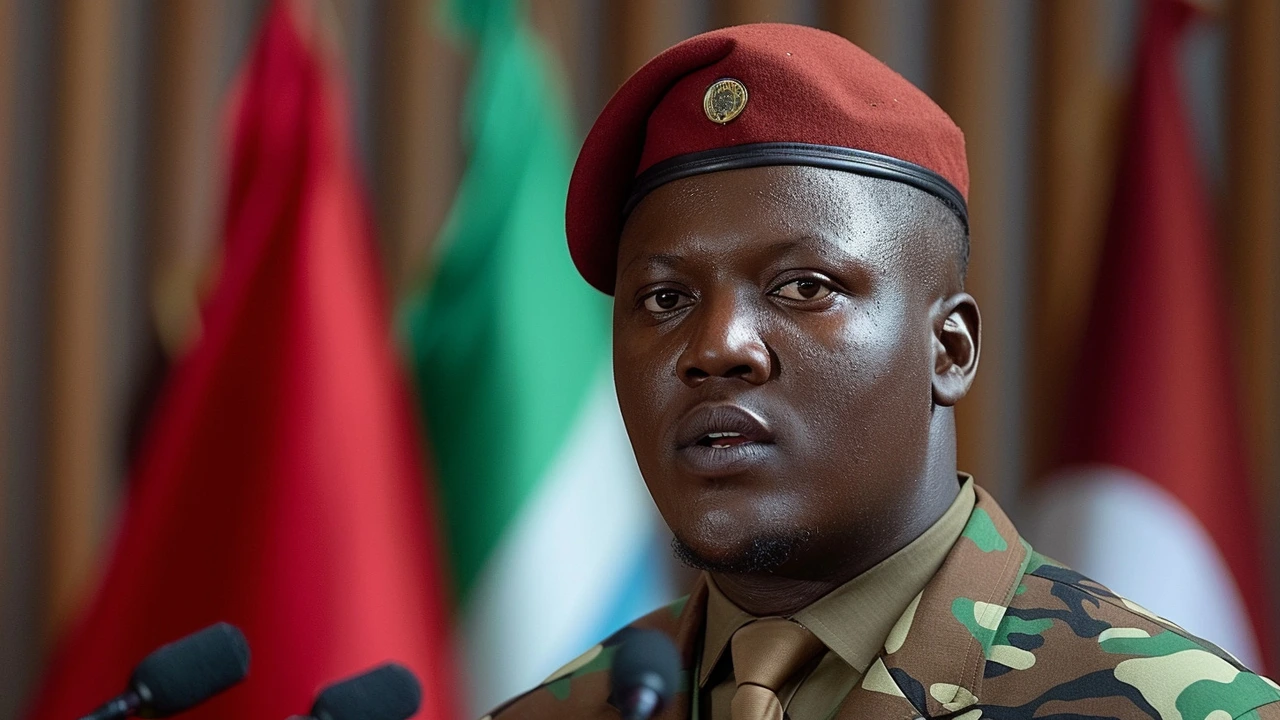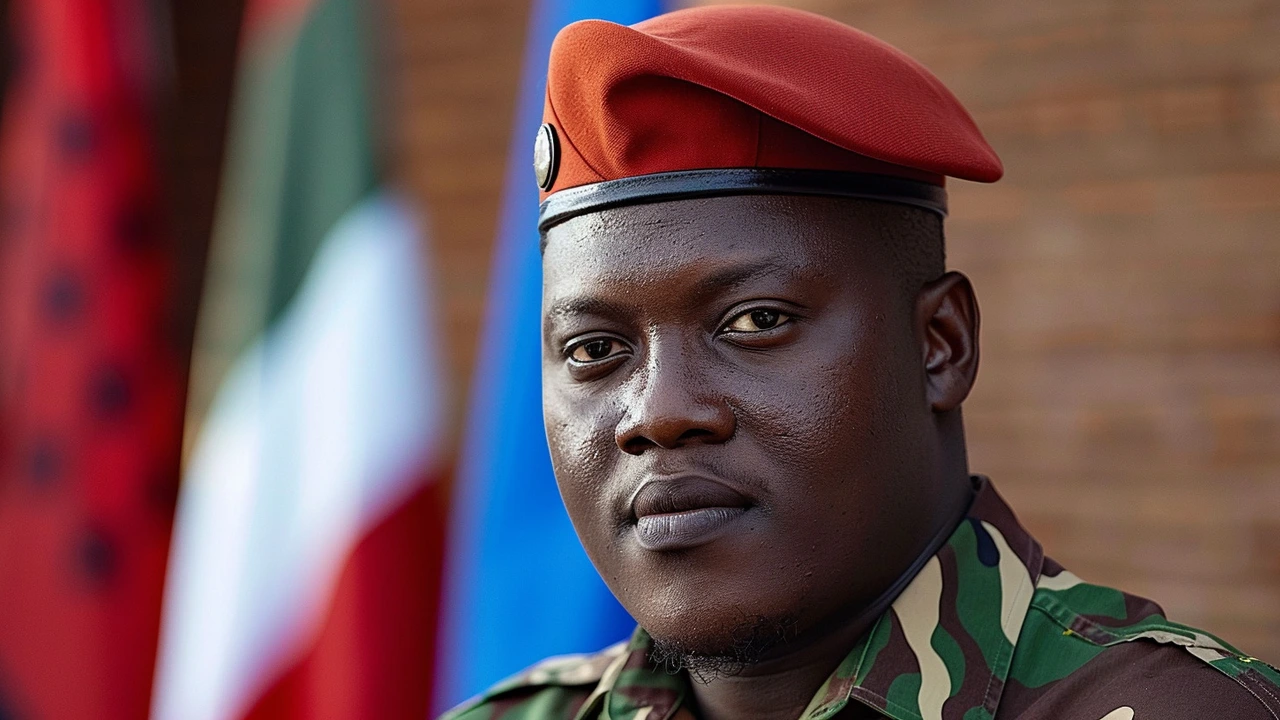Introduction: Burkina Faso's Extended Military Rule
In a significant move, Burkina Faso's military government has decided to extend its rule by five years. This announcement comes after a national consultation meeting held in the capital city, Ouagadougou. The current ruler, Captain Ibrahim Traoré, will be permitted to run in the upcoming presidential election. With the signing of a new charter, the transition period officially begins from July 2 this year, lasting for 60 months. However, there is a possibility of holding elections before the end of this period if the security situation in the country permits.
A Tumultuous History
Burkina Faso has been under military rule since January 2022. The initial phase of this military governance was led by Paul-Henri Damiba, who was later ousted by Captain Ibrahim Traoré. This period of military rule came as a response to a worsening security crisis exacerbated by militant Islamist violence. The country has faced severe consequences from this prolonged state of conflict, including thousands of deaths and the displacement of millions of people.

The New Charter: An Overview
The newly signed charter by Captain Ibrahim Traoré introduces significant changes in the political landscape of Burkina Faso. This document not only sets the 60-month transition period but also removes quotas for traditional parties in the assembly. Instead, it highlights 'patriotism' as the primary selection criterion for deputies. This shift aims at fostering a more unified and nationally-oriented assembly, devoid of the traditional party lines that often characterize political assemblies.
Security Concerns and Human Rights
One of the primary factors influencing this extended military rule is the ongoing security crisis in Burkina Faso. The violence perpetrated by militant Islamist groups has not only led to significant loss of life but also massively disrupted the lives of ordinary citizens. These security challenges have necessitated a continuous military presence to maintain stability and protect the country’s populace.
However, the military government has not been without its controversies. Various international and human rights organizations have accused the Burkina Faso government of committing serious human rights violations in its fight against Islamist insurgents. These accusations have cast a shadow over the government's efforts to bring about peace and stability.

Implications for Burkina Faso’s Future
The decision to extend military rule by five years has far-reaching implications for Burkina Faso's future. The possibility of Captain Ibrahim Traoré running in the next presidential election signifies a potential shift in the country’s leadership and governance style. This extension period allows the military government to focus on stabilizing the security situation, rebuilding the nation's infrastructure, and addressing the humanitarian crisis caused by the violent conflict.
However, the success of these efforts depends on numerous factors, including the government's approach to human rights and its ability to garner international support. The international community's reaction to this extension and their willingness to provide aid and support will also play a crucial role in the nation's recovery process.
The Road Ahead
As Burkina Faso embarks on another five years under military rule, the eyes of the world are watching. This period is crucial for the country's future, presenting both significant challenges and opportunities. The government’s ability to navigate this complex landscape, address the security crisis, enhance human rights, and foster national unity will determine the course of Burkina Faso's journey towards stability and prosperity.
In conclusion, while the extension of military rule brings hope for improved security and governance, it also demands vigilance and accountability. The international community, human rights organizations, and the citizens of Burkina Faso will all play vital roles in ensuring that this period leads to a more peaceful, stable, and prosperous nation.

Write a comment